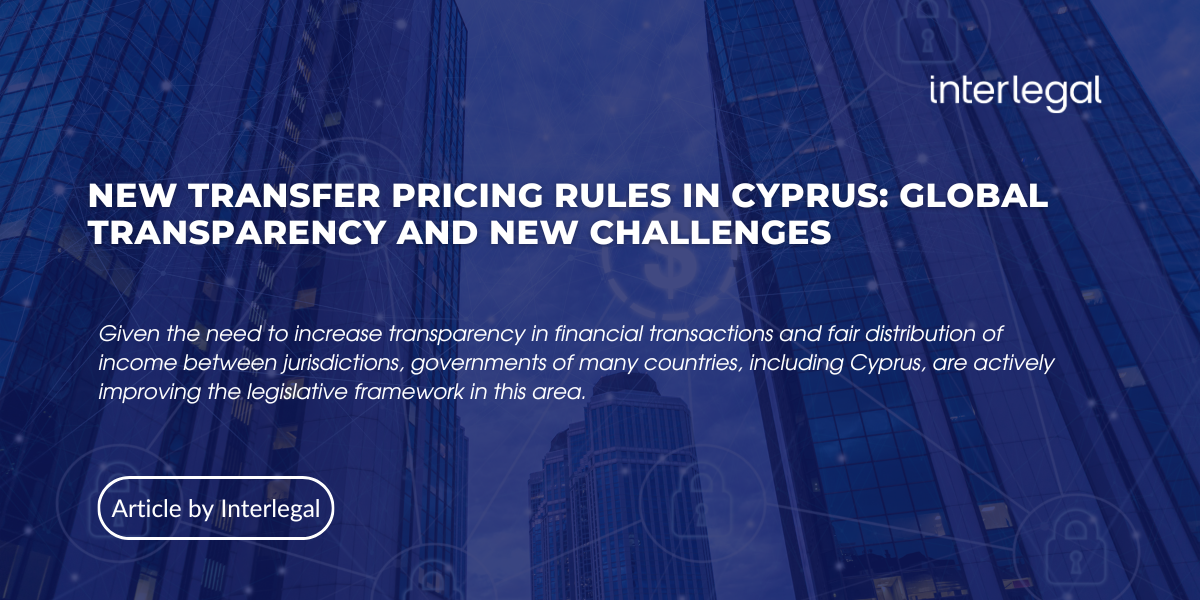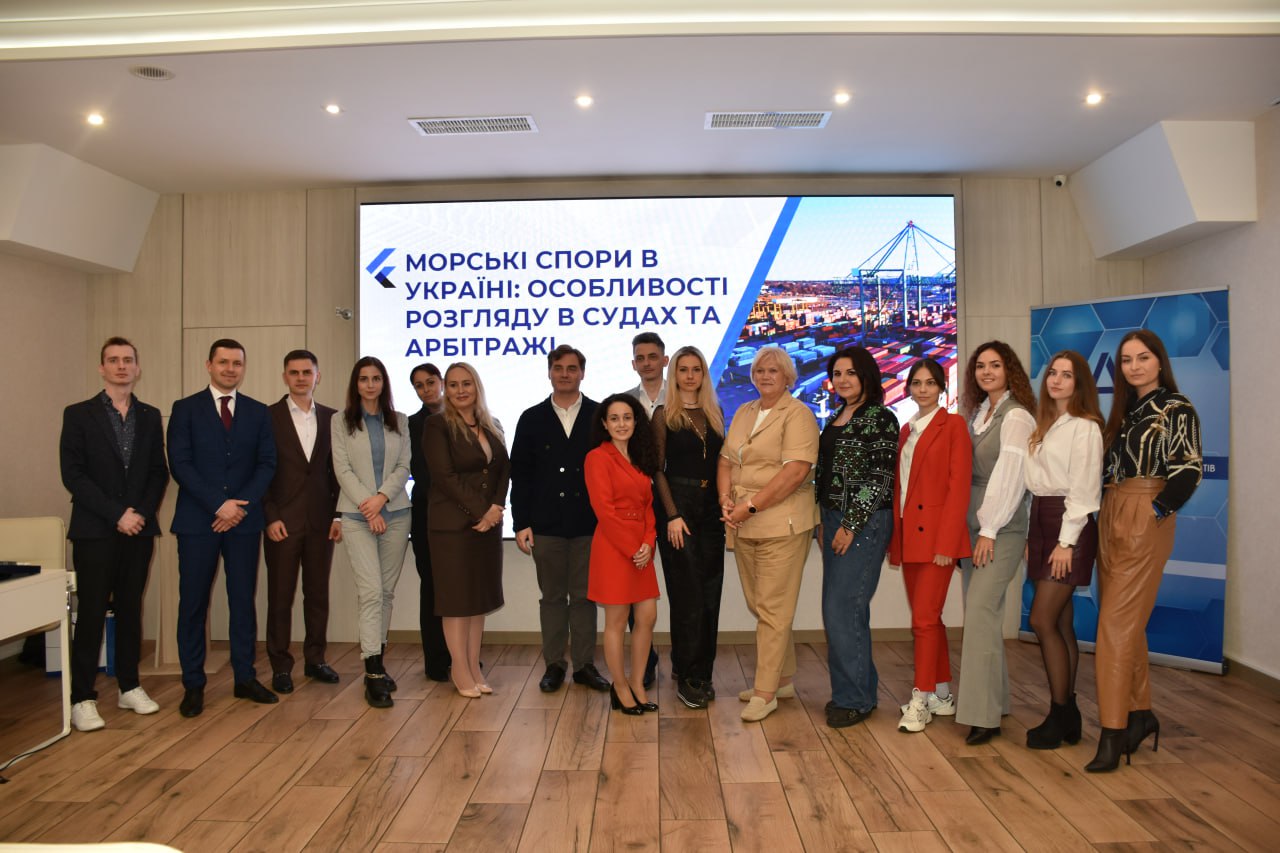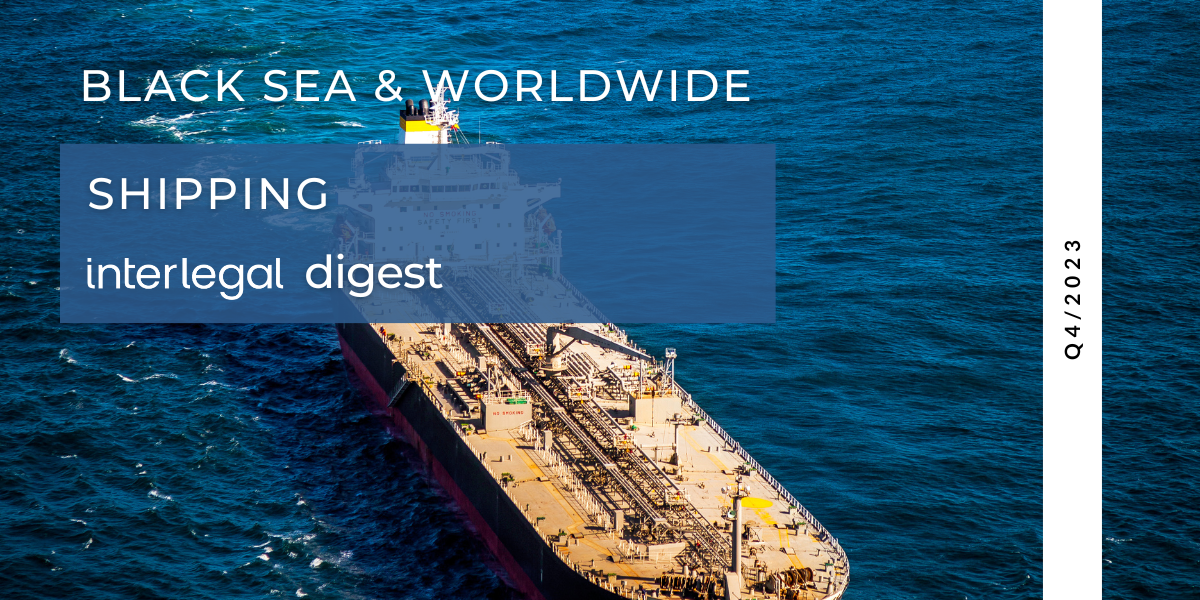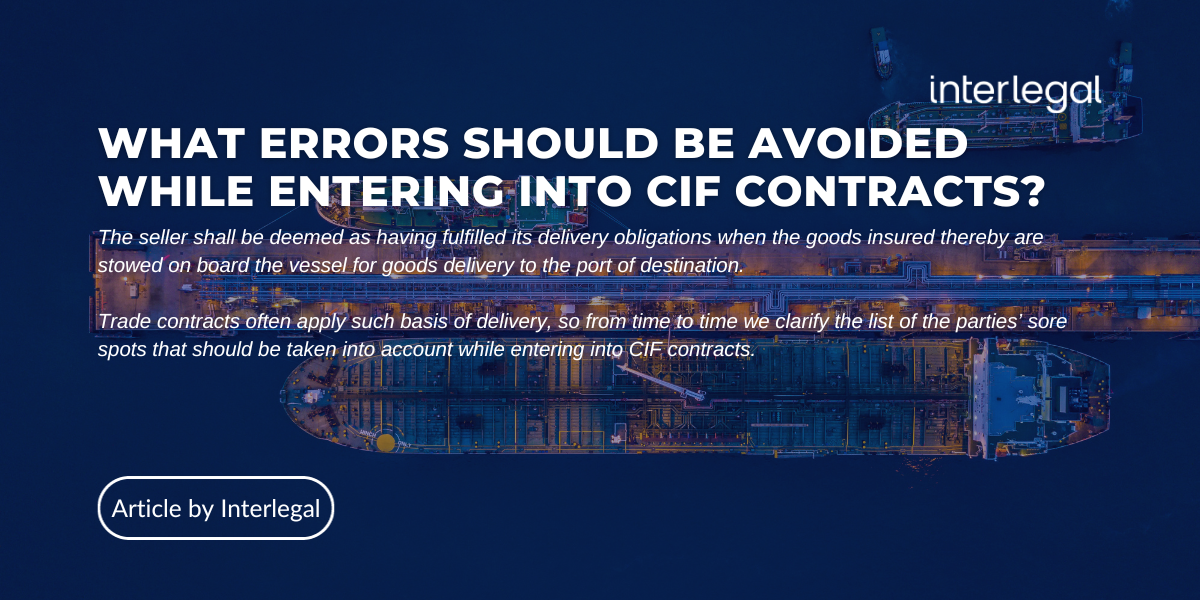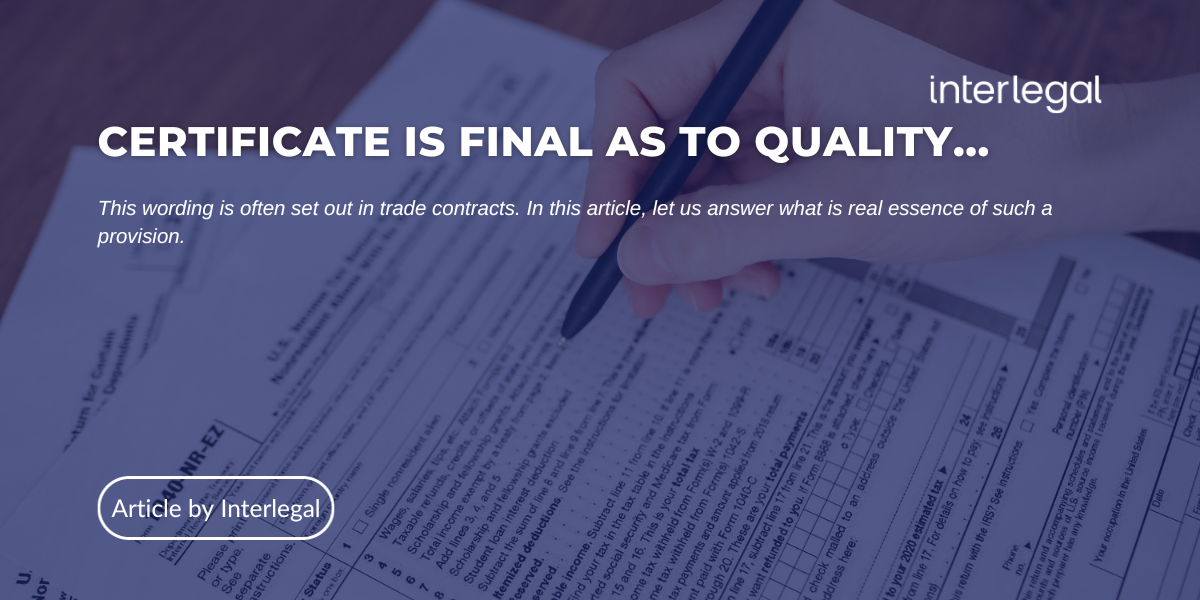Sanctions of Black Sea Region countries
28 February, 2019
2
Sanctions of Ukraine
Since 1995, shipping has been Interlegal principal activity. Our traditional clients are shipowners, managers, charterers, cargo owners, P&I clubs, insurance companies, ship chandlers, ship agents, fuel suppliers, ship repair yards, and other parties to carriages.
At the territory of Ukraine, in order to defend interests of national security, sovereignty and territorial integrity of Ukraine, to combat terrorism, to prevent violation and to restore violated rights, freedoms and lawful interests of the citizens of Ukraine, the society and the state, the following types of sanctions may apply:
- sanctions applicable to entities engaged in foreign economic activities or to foreign business entities, in accordance with the Law of Ukraine “On foreign economic activity” No. 959-XI dd. 16.04.1991, i.e. foreign economic sanctions;
- special economic and other restrictions (sanctions) prescribed by the Law of Ukraine “On sanctions” No. 1644-VII dd. 14.08.201, i.e. special sanctions.

Foreign economic sanctions. They are imposed due to violation of the Law of Ukraine “On foreign economic activity” No. 959-XI dd. 16.04.1991 and correlated laws Ukraine, in particular, due to breach of currency, customs, tax and other legislation, providing certain prohibitions, restrictions or procedure of foreign economic operations, by foreign business entities as well as due to actions committed thereby, which may cause damage to national economic security.
It prescribes three types of foreign economic sanctions, namely:
- fines;
- individual licensing mode;
- suspension of foreign economic activity.
Procedure of imposing sanctions includes a set of actions and decisions of various state authorities, which result in issuing the Order of the Ministry of Economic Development and Trade of Ukraine.
Such procedure includes the following consecutive stages:
- initiating imposition of sanctions;
- considering applications of state authorities;
- making a decision.

Imposition of sanctions is usually initiated by fiscal and law enforcement bodies, such as: State Fiscal Service of Ukraine, Security Service of Ukraine, but the law prescribes such powers also for the Antitrust Committee, the Control and Audit Service, the special executive body governing the financial service markets, the National Bank of Ukraine and judicial bodies.
Sanctions shall cover all the types of foreign economic activities set forth in Article 4 of the Law of Ukraine “On foreign economic activity”, operations whereunder are performed by the Ukrainian entities engaged in foreign economic activities and by foreign business entities.
If entities engaged in foreign economic activities or foreign business entities, being subject to sanctions, have eliminated their violations of the Ukrainian legislation or have taken special measures guaranteeing compliance with the Law of Ukraine “On foreign economic activity” or correlated laws of Ukraine, initiators of imposing such sanctions may submit to the Ministry of Economic Development and Trade of Ukraine materials on cancellation, type modification or temporary suspension thereof.
Special sanctions. They are imposed on the following grounds:
– actions of the foreign state, the foreign legal entity or natural person, other entities causing actual or potential threats to national interests, national security, sovereignty and territorial integrity of Ukraine, facilitating terrorism or violating rights and freedoms of human and citizen, interests of society and state, causing occupation of the territory, expropriating or restricting the right of ownership, causing proprietary damages, impeding stable economic development and complete performance of rights and freedoms of the citizens of Ukraine;
- resolutions of the UN General Assembly and the UN Security Council;
- decisions and regulations of the EU Council;
- violations of the Universal Declaration of Human Rights, the UN Charter;
- commitment of the above actions by the foreign state, the foreign legal entity, the legal entity controlled by the foreign legal entity or the non-resident natural person, by the foreigner, the person without citizenship and by the persons engaged in terrorism, in respect of another state, citizens or legal entities of the latter one.

The law provides 25 special sanctions including the following: freezing assets; restriction of trade operations; restriction, full or partial cessation of resource transit, flights and carriages through the territory of Ukraine; preventing capital outflow outside Ukraine; suspension of fulfillment of economic and financial obligations etc.
The law also divides all the above sanctions into the following categories:
- sectoral sanctions, i.e. sanctions against the foreign state or indefinite scope of persons engaged in certain activity;
- personal sanctions, i.e. sanctions against the certain foreign legal entities, the legal entities controlled by the foreign legal entity or the non-resident natural person, the foreigners, the persons without citizenship and the persons engaged in terrorism.
Procedure of imposing special sanctions is the following.
Application, cancellation and modification of sanctions shall be initiated by:
- the Supreme Council of Ukraine;
- the President of Ukraine;
- the Cabinet of Ministers of Ukraine;
- the National Bank of Ukraine;
- the Security Service of Ukraine.
The National Security and Defense Council of Ukraine shall consider proposals upon application, cancellation and modification of sanctions.
Sanctions shall be implemented by:
- the Supreme Council of Ukraine (for sectoral sanctions);
- the President of Ukraine (for personal sanctions).
Special economic and other restrictions (sanctions) shall be performed by:
- the Security Service of Ukraine;
- the National Bank of Ukraine.
The Cabinet of Ministers of Ukraine improves the procedure of imposing, performing and monitoring sanctions. But today the Cabinet of Ministers of Ukraine has not elaborated (updated) the procedure of imposing, performing and monitoring sanctions yet.
Today, the key element of the mechanism of performing special economic and other restrictions (sanctions) is Clause 2 Part 1 Article 25 of the Law of Ukraine “On the Security Service of Ukraine” No. 2229-XII dd. 25.03.1992, which defines the right of the Security Service of Ukraine to submit to state and local authorities, enterprises, institutions and organizations of all the forms of ownership, for mandatory consideration, proposals upon the national security, including upon securing protection of state secrets.

With regards to legal nature and goals of sanctions, they are related directly to the issues of national security; thus, the list thereof is not exhaustive. The entire state apparatus is aimed to implement sanctions, having authority in all the scopes of government.
Decision on modifying sanctions shall be made by the authority who made a decision on imposing thereof, either in accordance with the law, or under its own initiative, or based on proposals of state authorities, namely: the Supreme Council of Ukraine, the President of Ukraine, the Cabinet of Ministers of Ukraine, the National Bank of Ukraine, the Security Service of Ukraine, i.e. those authorities who initiated imposition of sanctions.
Decision on cancelling sanctions shall be made by the authority who made a decision on imposing thereof in accordance with the law, in case when imposition of sanctions resulted in achieving their goals.
Sanctions of Russia

Vladimir Putin, the President of Russia, signed the Decree “On taking special economic measures due to unfriendly actions of Ukraine related to citizens and legal entities of the Russian Federation” No. 592 dd. the 22nd of October 2018.
Federal Laws No. 127-ФЗ dd. the 4th of June 2018 “On measures aimed to impact (to combat) unfriendly actions of the United States of America and other foreign states”, No. 281-ФЗ dd. the 30th of December 2006 “On special economic measures” and No. 390-ФЗ dd. the 28th of December 2010 “On security” govern relations upon sanctions.
For the full list of natural persons being subject to economic sanctions imposed by Russia, click here (in Russian).
Sanctions of Turkey
In 2017, administration of the Turkish Chamber of Shipping (Turkish Chamber of Commerce and Industry) sent to all the entities engaged in sea carriages and port business a circular letter “Certain principles of shipping in the Black Sea and Crimean Regions”.
Turkish sea ports, maritime agents, operators and shipowners have been informed officially that “vessels arriving from the Crimean region annexed by Russia and from the Crimean Sea Ports are not allowed to enter Turkey, with no permission to sail from sea ports in this region”.
In addition, a strict control system has been introduced: “Control shall be facilitated by requesting from vessels to provide documents on leaving the last port, jointly with log book entries for leaving the last port, in order to convoy the subject, in case of the Port Authority notifying on vessel arrival from the Black Sea Ports, jointly with control over the use of all available systems and open resources (AIS etc.) in order to verify the fact that the vessels arrived from the specified ports”, as stated in the document.
Such control is reported to be performed by each Turkish Port Authority personally.
Introduction of such a procedure is based on the common practice, when violating vessels recently have submitted frequently to the Turkish Maritime and Port Authorities false information about the ports of destination, i.e. have indicated other sea ports than Crimean. Subject to this requirement, the Turkish Port Authorities may influence all the vessels crossing the Bosporus, without exception.
The Georgian Government created so-called Otkhozoria-Tatunashvili List (Decree No. 339 dd. the 26th of June 2018). Sanctions have been imposed against persons stated in this List due to violation of the rights of Georgian citizens at the occupied territories since 1991, as declared by Mamuka Bakhtadze, the newly elected Prime Minister of Georgia, at the government administration briefing.
Bakhtadze stated, “This list is not exhaustive, since law enforcement authorities still make regular investigation. Of course it can be expanded”.
It is noteworthy that, according to the bipartisan resolution adopted by the Georgian Parliament in March, the Georgian Government should have submitted to the Parliament till the 15th of June a sanctions list of persons accused of “murder, abduction, torture and inhuman treatment against citizens of Georgia at the occupied territories”, as well as accused of sheltering them.
The new Prime Minister declared that the Government had determined measures to be taken by international organizations and partner countries in order to impose restrictions on persons entered into the List. Bakhtadze noted, “We’ll do all the best in order to bring to responsibility murderers of our citizens and those who were covering the criminals”. The Resolution “The occupied territories of Georgia: ten years after the Russian invasion”, adopted by the European Parliament by a majority of votes on the 14th of June, assessed positively the bipartisan resolution of the Georgian Parliament on violation of human rights in Abkhazia and the Tskhinvali Region, including so-called Otkhozoria-Tatunashvili List. The European Parliament urged Member States and the EU Council to enter into blacklist and impose sanctions, both locally and EU-wide, on those persons who have already been entered or will be entered into this sanctions list. Following approval of the Otkhozoria-Tatunashvili List at the Government Meeting, the relevant document will be submitted to the Parliament. It includes persons accused of involvement in murder of two citizens of Georgia, Gigi Othozoria and Archil Tatunashvili – this list is named after them.

The Georgina opposition wished also to enter into the list names of the Russian politicians. Meantime, in the parliamentary minority, the European Georgia Party treats as important to have such document “actual in such aspect, that the partner states could impose restrictions on those identified by the list”. Party of ex-President Mikheil Saakashvili, states that the sanctions list is a political and moral document and that the main punishment imposed by the partner countries will be rejection of visas for the individuals entered therein. David Zalkaliani, the Minister of Internal Affairs of Georgia, in turn, noted that the Georgian authorities still consolidate the international community in order to take appropriate measures against the persons entered into Otkhozoria-Tatunashvili List. He says that such measures will include both rejections of visas, proprietary and financial restrictions. In 2008, due to the Russian-Georgian war, the Russian Federation recognized independence of two Georgian regions (i.e. Abkhazia and South Ossetia) and transferred additional troops and armed forces to its own military bases located at these territories. All the states worldwide, except Venezuela, Nicaragua, Nauru and Syria, treat such regions as the territory of Georgia occupied by Russia.
Four Georgian agencies have been appointed as liable for enforcement of sanctions regarding the persons entered into Otkhozoria-Tatunashvili List, namely: the Ministry of Justice, the Ministry of Internal Affairs, the Ministry of Foreign Affairs and the National Bank of Georgia.
Sanctions of Bulgaria
Bulgaria applies EU-imposed sanctions against Russia, in particular, regarding supply of certain of goods and technologies to Russia. The Order of the Ministry of Economy and Energy of Bulgaria No. РД-16-1323 dd. the 1st of October 2014 (placed at the website of the Ministry of Economy of Bulgaria) prescribes the procedure for the working group aimed to consider applications and to grant permissions for supply of goods and technologies, specified in the Annex II of the EU Council Regulation No. 833/2014 dd. the 31st of July 2014, to natural persons or legal entities, institutions and bodies in Russia or in another state, if such goods and technologies are designated for use in Russia. The Order also prescribes the procedure of interdepartmental cooperation and the sequence of actions to be committed by persons due to granting the above permissions.
The principal regulatory act governing conformity in Bulgaria is the Law on Technical Requirements for Products. The persons covered by the Law include, inter alia, importers being obliged to put on the market only products whose compliance has been assessed and certified in the manner prescribed by the Law. The Law prescribes proprietary sanctions against natural persons and legal entities for breach of the prescribed procedure for declaring conformity, marking of conformity, product circulation on the market and other aspects of the procedure for certifying product conformity with mandatory requirements. However, depending on severity of violation, sanctions vary from 100 to 10,000 BGN (i.e. from 50 to 5,000 EUR).
Sanctions of Romania
Romania is concerned about buildup of the Russian military forces in Black Sea and will support strengthening anti-Russian sanctions in response to Russia’s aggressive actions in the region.
Teodor Mele?canu, the Minister of Foreign Affairs of Romania, noted, “Recently, we have been particularly concerned about buildup of the Russian military forces in Black Sea and on the eastern borders of EU and NATO. In this regard, one of the main tasks of the Romanian EU presidency is aimed to strengthen security in the region”. The diplomat emphasized that Romania supports strengthening anti-Russian sanctions in response to Russia’s aggressive actions in the Black Sea. As for the Russian attack on the Ukrainian vessels, the Ministry of Foreign Affairs of Romania states that the Russian aggression undermines the foundations of regional security. Mele?canu said also that Romania, as a full member of EU and NATO, will formulate its own position, but in accordance with position of the allies. We remind that Romania holds the EU Presidency since the 1st of January 2019.
In general, both Bulgaria and Romania are one of the few EU countries who faced directly neither the European sanctions against Russia nor the Russian counter-sanctions. First, structure of their export into Russia does not include high-technological equipment forbidden for export. Second, among the European sanctions there is an exception for Central and Eastern European countries having historical economic relations with Russia, in particular, in power and military industries. Third, the republics of concern have minimum volume of agricultural product supply to Russia (nearly 2%). But indirect impact of the Russian embargo turned out to be too tangible, first of all, for the Bulgarian agricultural industry.
In the framework of Moscow’s response, manufacturers from other EU countries started exporting their products to Bulgaria at reduced prices. Cheese and other dairy products, mainly from Poland, Holland and the Czech Republic, appeared at the Bulgarian market. Some of them are sold in Bulgaria even at low cost prices. A similar situation concerns fruit and vegetable market. For the recent years, Bulgaria has been major fruit and vegetable importer: economists state that its share of import in consumption up to 90% in some years. Turkey was the main supplier of such type of products to the Bulgarian market. The flow of cheap vegetables and, in particular, fruit from EU countries worsened the Bulgarian manufacturer’s status. Such commodities as Polish apples, Spanish pears and even Bulgarian pepper and tomatoes imported from EU appeared in the Bulgarian stores and markets.
Meat product manufacturers also sustained essential losses due to subsidized import from EU countries. Therefore, following the indirect influence of the Russian counter-sanctions, only four agricultural sectors remained promising in Bulgaria: grains and oilseeds (both EU-subsidized), cultivation of essential oil crops and, to a lesser degree, tobacco cultivation. Romania sustained minimum indirect losses due to the Russian sanctions.

Moldavian position
Igor Dodon, the President of Moldova, known for his sympathy for Vladimir Putin, asks the Russian Government to lift the ban on imports from Ukraine, since it prevents sending the Moldovan goods to the Russian Federation. As reported by Dialog.UA, Dmitry Medvedev, the Prime Minister of Russia, received a complaint regarding the difficulties due to imposing ban on import of the Ukrainian goods by the Kremlin. Igor Dodon sent such a compliant personally, acting in the interests of Moldovan producers, with its text published in his Twitter account.
He states that such ban of the Russian Federation “creates barriers for export of the Moldovan products to the Russian market due to extended route of cargo delivery and increased transport flows”. Therefore, the leader of Moldova asked Prime Minister Medvedev to find a solution for carrying the Moldovan products through the territory of Ukraine.
How do sanctions impact on trade in Black Sea Region?
“All bark and no bite”
Black Sea Region (Ukraine, Turkey, Bulgaria, Romania, Russia, Georgia) plays a crucial role for Europe: main routes connecting from west to east and from north to south cross it. All the post-Soviet protracted (frozen) conflicts occurred mainly in the Black Sea Region. They gave rise to so-called gray areas facilitating organized crime, illegal trade and radicalization. It is not difficult to see how Russia uses them for political intimidation of the new independent states – former Soviet republics.

From the very beginning of the Russian military aggression at the Crimean Peninsula, position of the international community has become quite clear in condemning Russia’s interference with the internal affairs of Ukraine and violation of its territorial integrity and sovereignty. The Russian Federation was demanded to comply with international law regulations, international obligations, inter alia, in the framework of the Budapest Memorandum. The Russian government, without recognizing legitimacy of Ukrainian Revolution, in particular, toppling of President Yanukovich, the constitutional reform and creation of a new government, rejected demands of the global community and even inspired and inflated the military conflict in Eastern Ukraine.
Crimea impact

No doubt, annexation of the Crimea effected trade in the Black Sea Region countries. Today, the share of Russia, Ukraine, Kazakhstan and the Danube Region countries is up to 40% of the global wheat trade. The Black Sea Region is a runner up (after the Persian Gulf Region) among oil and natural gas sources. It is also replete with proven reserves of minerals, metals and other natural resources. The Black Sea is an inland sea, with ports located in many coastal cities, such as Constanta, Odessa, Sevastopol, Kerch, Novorossiysk, Sochi, Sukhumi, Batumi, Trabzon, Samsun, Burgas and Varna.
A significant impact on the container turnover in the countries of the Black Sea region was exerted by the military conflict in the east of Ukraine and the trade embargo against Russia. As a result, the total throughput of containers in 2015 did not exceed 2.3M TEU, and all this against the background of low freight and charter rates, due to which the majority of container lines operate at best at breakeven. But by the end of 2016, almost all countries of the Black Sea region increased the traffic of loaded containers. According to the Ukrainian Sea Ports Administration , its ports showed growth, which allowed them to restore the positions lost in 2015.
In 2016, one notable event was a forced change of the usual export routes due to the transit embargo imposed by Russia. Early in the year, it complicated significantly routes of Ukrainian trucks and railcars carrying goods to Kazakhstan, Central Asia and other states through its territory, while in summer it banned transit carriage of goods from Ukraine to Kazakhstan and Kirgizia by road and by rail.
Cabotage carriages
It is noteworthy that cabotage carriages between the Ukrainian sea ports have become very popular for the recent years. According to statistic data, mutual trade between the Russian Black Sea Region and other Black Sea Region countries is insignificant on the general background. The turnover between Krasnodar Region and its neighbours in the Black Sea Region – Abkhazia, Bulgaria, Georgia, Romania and Ukraine – in 2016-2017 amounted to only $495 and $576M respectively. The Russian Federation purchased fruit and vegetables in Egypt only in 2017 nearly at the same cost (ca. $0.5 billion), while the Black Sea Region share in the aggregate turnover in Kuban for these years decreased from 5.3% to 4.9%. Growth in throughputurnover between regional exporters and non-CIS countries occurred in the Mediterranean countries, first of all in the Middle East. According to the State Statistics Service of Ukraine, in 2017 its turnover upon trade with Russia increased substantially: Moscow regained the status of one of the largest trade and economic partners of Kiev, with increase of the goods supply by 39.9%, as compared to 2016.
Russia is not shown in the Black Sea Transboundary Cooperation program with principal financial flows from the EU to the Black Sea Region states. This program applies to Armenia, Bulgaria, Greece, Georgia, Moldova, Romania and Ukraine only. Even heavyweights, such as the USA, China and Japan, do not try to use the Black Sea in their own interests. Their interventions are very far from the Black Sea regional integration in the form Russia would like to see it.
Sanctions affect
It is quite obvious that sanctions affect international policy and economy. However, such effect is ambiguous. Sometimes international economic sanctions cause more damage to their instigators than to their goals. Close integration of territorial markets in the modern globalized world provides not only an instrument of negative influence by means of breaking economic relations, but also creates many opportunities to counteract such effects by means of fixing new relations. Therefore the issue concerning effectiveness of international economic sanctions is too vital. International economic sanctions are related to such problems as the humanitarian damage suffered by innocent people, as well as the third countries damage caused by introduction of sanctions (special economic problems arising from taking preventive or coercive measures). UN has done all the best to solve such problems. Its efforts resulted in creating the concept of targeted and smart sanctions, the essence whereof is the most focused impact directly on the object (i.e. political groups or specific persons who bear direct responsibility for the committed offenses), the extremely clear goals for introduction of sanctions, their validity terms and criteria for cancellation of the sanctions regime. The effectiveness of arms embargoes and freezing financial assets is especially high.
Since 1997-1998, reformation of sanction policy is in process. It includes several interrelated processes: the Interlaken Process initiated by the Swiss Government, the Bonn-Berlin Process initiated by Germany, and the Stockholm process initiated by Sweden. These countries have funded a research conducted by the Watson Institute for International Studies who carefully studied such a subtle legal problem and put forward interesting proposals in 2006.
Effectiveness of international economic sanctions has been assessed within two aspects: analysis of the effects for economy and security of countries and analysis of the efficiency of imposing sanctions as a foreign policy instrument.
Analysts came to the following general conclusion: sanctions are much more effective when they are imposed against friendly or neutral countries: nearly 50% of success for friendly countries, 33% for neutral ones and only 19% for hostile ones. But sanctions against hostile countries did not ever result in termination of hostilities.
Of course, restrictions on technology transfer in future will have negative impact on the Russian economy. In the nearest 5-7 years, restriction in exploration and production technologies (with regards to the fact that there are neither such technologies nor a base for their creation in Russia) will have negative impact on oil and gas production level and its cost. But today the effect of such a restriction is zero. The same concerns military technologies: today Russia is actively increasing its production of arms and is keeping their export at a high level (over $10Bn per year), without any essential influence of imposed restrictions. However, in future inability to use global achievements in dual technology development will result in the Russian arms falling behind their closest competitors, such as the USA, the EU, Israel and most likely China. Today Russia’s position in the international arms market is weakening and probably will lose the Indian market (first of all, military aircraft), while China, still buying Russian air defence systems, has been already focused on its own developments in aviation. Probably in 10–15 years, with focus in this industry shifted to the sixth generation systems in developed countries (and, respectively, to the fifth generation in developing countries), Russia will have nothing to offer on the market.
Counter-sanctions, i.e. self-restraint measures related to food import, implemented first of all against a number of countries (first of all, EU members) and subsequently against Turkey, also have no essential impact on the economy. There was no import substitution regarding prohibited items (i.e. the proportional growth in production of their exact equivalents in Russia), at least because devaluation of the Rouble reduced consumption significantly: loss of the prohibited import volume in fact was insignificant. Import substitution commodities got much more expensive than the average daily demand goods (price growth for products from the sanctions list ranged from 30% to 100% for the last 18 months). However, due to falling demand and total reduction in quality of domestic equivalents (switching to surrogate ingredients, refusal to withstand technology, etc., in order to reduce prime cost and to speed up production process), neither food surplus nor food shortage appeared.
Probably, the unpredictable and inconsistent hostile behaviour of Russia in respect of foreign economic institutions has the most negative impact on the Russian economy. The attempt to autonomize the country in vital industries (telecommunications, payment systems, transportation systems, IT, navigation, funding non-commercial and charitable organizations etc.) often (but certainly not always) results in lobbying efforts by local players, operating not very skilfully and in the limited scope, and corrupt or short-sighted officials. Such an attempt boosts expenses and results in manufacturing a product which cannot be used to the full extent as a substitute for modern technology; sometimes it even results in painful rejection of well tried and tested international technologies. It threats security of Russia – not due to a fictional external threat, but due to the real threat, namely non-functionality of a substitute product.

It is quite difficult to determine how successful were the measures aimed at changing the policy of the countries being targets of sanctions. Such concepts as prestige, status, reputation are intangible and one can hardly find a suitable empirical indicator of their condition. Sanctions are also imposed jointly with attempts of political pressure, the threat of force, and it is not easy enough to find out which measures were successful.
International sanctions are the most effective as means of persuasion, not punishment. They need to contain elements of motivation encouraging observance thereof. The target of sanctions should understand which actions it is appealed to perform. Meantime full or partial compliance with requirements should cause an appropriate response from the UN Security Council, respectively, in the form of sanctions relief or cancellation. Today the most important task is aimed to ensure legitimacy of international sanctions. Maintenance of peace and security largely depends on common understanding of legitimacy of imposing international legal sanctions. In this regard, while making a decision on the introduction of international sanctions, it is necessary to promote, first of all, maintenance of international peace and security and legitimacy of sanctions as set forth in the UN Charter and other international law regulations.
Black Sea Region case study
Unfortunately, issues related to sanctions are too politicized. The practice of applying UNCLOS, for instance, with regards to the regime of transit passage through straits used for international shipping, is a little bit different from the standards set forth in this Convention. Ukraine, in turn, does not make it possible to provide security, since vessel detention does not imply this. Therefore, it happens that national procedures contradict the conventional postulates of international law.
Interlegal portfolio contains the following notable cases on the P&I’s side:
Today, case has been considered by the court of appeal. Both vessel arrest and detention have similar effects: route restriction, i.e. it has been blocked at the seaport. The vessel has been detained by the Harbour Master in compliance with Award of the State Border Service of Ukraine. It has been operated under the Lease Agreement concluded in 2011 between OJSC “WEB Leasing” (the Lessor) and LLC “V.F. Tanker” (the Lessee). OJSC “WEB Leasing” has been entered into the Ukrainian list of sanctions. While staying at the seaport, there was the last lease payment term. Following lease payment, title on the vessel was transferred to LLC “V.F. Tanker”. Therefore, now there are no lawful and reasonable grounds for further vessel detention. Unlawfulness of further detention has been certified also by Expert’s Opinion of the Koretsky Scientific and Research Institute of State and Law. But Kherson District Administrative Court rejected the claim on vessel release. Now it got clear how thin the line between legal and political matters is. Further vessel detention will threat essential losses to be incurred by the state of Ukraine, due to the vessel further idle stay, while the shipowner will obtain damage reimbursement from the insurers;
- case on m/v MEKHANIK POGODIN (ІMO:9598397). For over 7 years, m/v MEKHANIK POGODIN (ІMO:9598397) was owned and used by a legal entity which was not subject to special economic and other restrictions of Ukraine. But according to primary documents submitted under vessel call at the seaport, the documentary vessel owner was subject to special economic and other restrictions (sanctions) which resulted in immediate vessel detention.
- case on m/v SEABREEZE (IMO: 9143312). The court made an order on the arrest of one vessel due to the other vessel’s actions. Although the Prosecutor Office states that both vessels have the same manager, today it is false statement, since the company had ceased to manage the vessel long time before the sanctions were imposed. Therefore, information from out-of-date commercial sources has launched state mechanisms and in fact, has impeded absolutely lawful and transparent business;
- case on m/v KANTON (IMO: 9412311). The court arrested m/v KANTON (flag of Tuvalu) for breach of the regime of calling at the Crimean seaports. Having called at the closed Crimean sea ports, shipowners, masters and crew members committed the crime stipulated by Article 332-1 of the Criminal Code of Ukraine.
- case on m/v SKY MOON (IMO: 7525334). In 2016 the vessel was detained due to breach of the procedure of entering/leaving the occupied territory of the Crimea, followed by her seizure in favour of the state of Ukraine in 2017.
With regards to diversity of cases proceeded by Interlegal experts, we understand clearly the algorithm of works upon the sanctions-related cases in Ukraine and we may provide any legal support to our clients.


